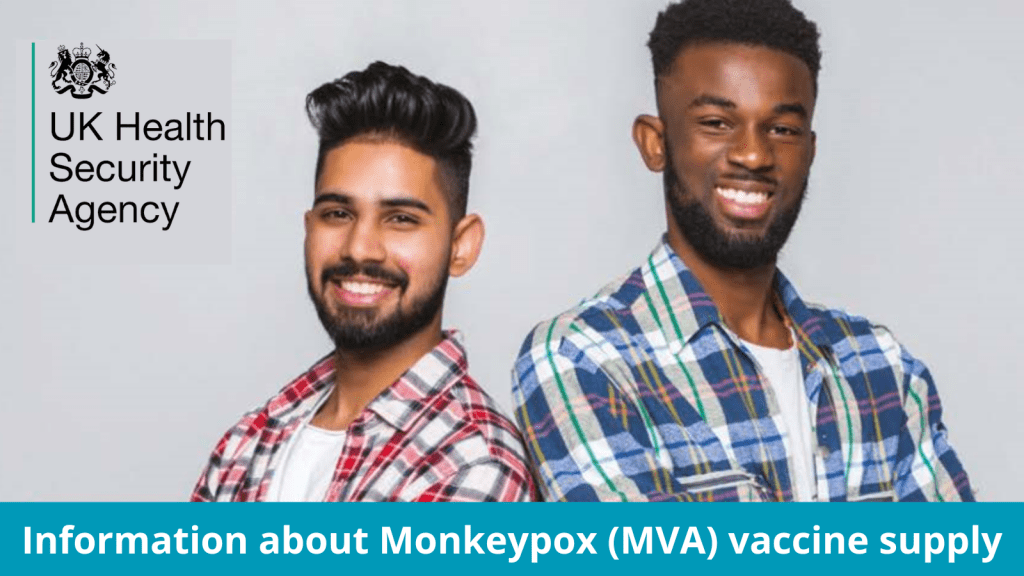Monkeypox
What is Monkeypox?
Monkeypox is a rare disease caused by infection with the Monkeypox virus. It is related to the viruses that cause smallpox (variola virus) and cowpox. Monkeypox is not a sexually-transmitted infection.
Transmission
Monkeypox is usually transmitted through close contact with an infected individual, including sexual contact. Contact with sores or scabs of infected individuals, or their infected bedding or clothes, can also be a means of transmission. Less frequently through coughing.
Although Monkeypox is rare in this country, transmission has occurred within sections of the community, with a high proportion of cases currently (though not exclusively) affecting men who are gay, bisexual and men who have sex with men.
What is being done about it?
The UK Health Security Agency (UKHSA), the organisation in England responsible for public health and infectious diseases, has been monitoring the number of cases and the spread of Monkeypox since it was first detected in the UK.
Anyone can get Monkeypox, and although more people have been diagnosed with it recently, the risk remains low.
In England, most cases have been in men who are gay, bisexual and men who have sex with men, so it’s particularly important to be aware of the symptoms if you’re in these groups.
Symptoms to look out for
Common signs of Monkeypox infection include fever, headache, muscle aches, exhaustion, swollen lymph nodes and development of a new rash or spot anywhere on the body.
You’re extremely unlikely to have Monkeypox if you have not been in close contact with someone who has Monkeypox or Monkeypox symptoms, and if you have not recently travelled to West or Central Africa nor had multiple sexual partners in a short space of time, here or abroad.
What is happening now?
The nationwide Mpox vaccination programme came to an end at the end of July 2023 and we will no longer be vaccinating at this clinic.
Due to successful targeted vaccination and increased public awareness, the number of Mpox cases in the UK has reduced at a remarkable rate since its initial outbreak. The small number of cases since April 2023 have been mostly in the London region of the UK.
If you regularly travel to London or abroad to have sex and feel you are eligible for the vaccine, you will be able to book a London-based appointment using the vaccine finder.
What to do if you’ve come into contact
with someone with Monkeypox
Anyone who may have come into contact with someone who has Monkeypox, is feeling unwell, or has symptoms that could be consistent with Monkeypox infection, should limit their contact with others and telephone Hope House Sexual Health Clinic on 0300 421 6500.
Please do not attend the clinic unless requested to do so.
Smallpox vaccination

About the Smallpox (MVA) vaccine
The NHS is now offering proactive, pre-exposure vaccination to men who are gay or bisexual, men who have sex with men (GBMSM) and frontline staff at greatest risk of exposure.
We will also continue to vaccinate those who have been in close contact with people with a confirmed case of Monkeypox.
To make best use of vaccine supply, first doses are being prioritised.
You have been asked to read the below UKHSA
information regarding the Smallpox vaccine.

I would like to be vaccinated now, but I haven’t been contacted
There is a limited supply of the Smallpox (MVA) vaccine so initially, one dose is being offered to those at highest risk.
As more vaccine supplies become available, more people will be offered the first dose of the vaccine.
Additional supplies are expected soon and those next in line will be offered the vaccine as soon as it becomes available.
